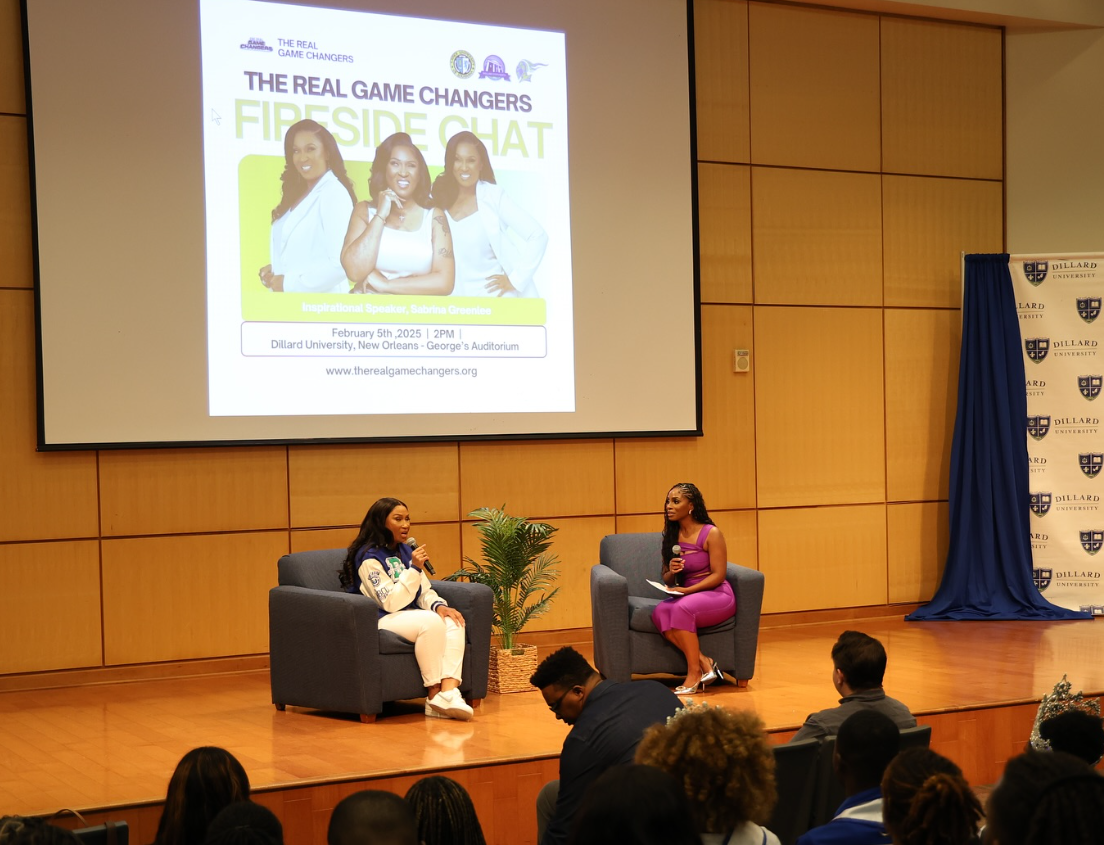
J. Quenton Cooper/Courtbouillon
Jemele Hill
NEW ORLEANS (April 13, 2018) – Journalism is a career that you must be fully committed to, Jemele Hill told Dillard University students April 7.
“Journalism, it’s not one where you dip your toe in; you gotta jump in it,” said the sports journalist, who appeared at both as a Brain Food series lecturer and at a question-and-answer session for mass communication majors and others beforehand. The Question and Answer and the Brain Food lecture had a combine audience of a total of approximately 65 people, including prospective students and their families on hand for “Decision Day.”
Hill, an ESPN journalist with her own show who made waves when she called President Trump a “white supremacist” and was suspended last September, answered questions about how she started her career, how she made it to ESPN and eventually earned the ability to anchor her own show, “SportsCenter.”
In February, Hill left the show to join the staff of “The Undefeated,” the ESPN miscrosite that fuses sports, race and culture, along with other assignments. She is a senior columnist and chief correspondent for the site. (Sports Illustrated reported that multiple sources confirmed she asked management for the switch.)
Hill said she expects to have some upcoming television specials at the end of this year, and she has also launched a production company where she will be focusing more on producing talent.
Hill said, “A lot of closed doors became open windows.” Many events in Hill’s life that were meant to be negative, such as growing up poor or more recently her suspension over her Twitter post, ended up opening doors for her.
This incident was Hill’s second suspension from ESPN; her first was in 2008, when she wrote a column and referred to cheering for the Celtics in Detroit was similar to “saying Hitler was a victim.”
Hill called internships invaluable and urged students not to discount starting out at small stations.
She recalled beginning apprenticeships and internships in high school. The best internships in Hill’s opinion were the small internships, and she advised students not to look over these sorts of opportunities where you learn the most and earn the most professional work, if not the most pay. On the other hand, interning for big companies such as ESPN means you do the small jobs and don’t get on-air time.
Another benefit to choosing to do an internship with smaller companies is those small companies have the tendency to hire their interns when they graduate: That’s how she got her first job out of college.
Hill said students should be “comfortable being uncomfortable” because then you learn and grow.

























